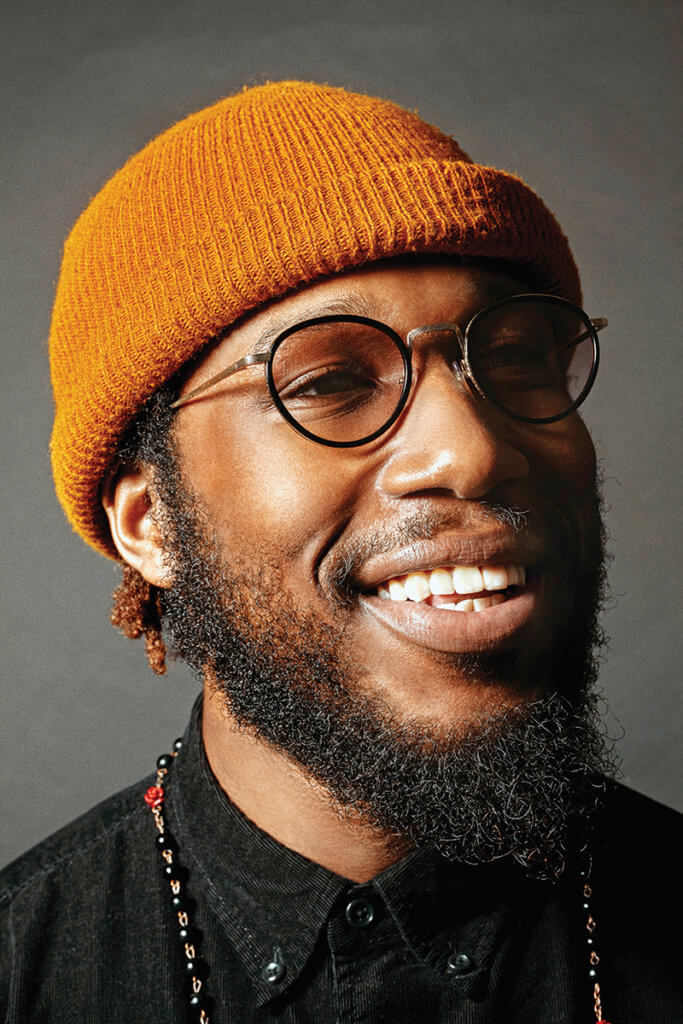Earlier this year, Hammond master Cory Henry dropped a killer EP with his band, The Funk Apostles. Now, as they head out for a fall tour of the States, we catch up with the Brooklyn native to chat about the band, his creative process, and how he tours with such a cumbersome instrument. Let’s jump right in…
You’re probably most known for your amazing work on the Hammond B3. What is it about the B3 organ in particular that draws the attention of so many keys players, as opposed to the other models Hammond introduced throughout the years?
I think the Hammond B3 was the latest model of the tone wheel series Hammonds. The sound is a little brighter than other organs.
Do you find any challenges touring with such a heavy (and some would say, unwieldy) instrument?
There are always challenges when trying to tour with an organ. Normally on the road I rent organs, [especially] when we are overseas.
In America I try to tour with my [own] organ as much as possible. Every day can be different, from problems with the tubes, or something in the Leslie, or drawbars sticking out or even some days not getting sound [at all]. Just gotta be ready for anything and have the organ mechanic on speed dial.
You’ve said that you think of music from the ’60s and ’70s as a “golden era,” because artists used music to speak their voice and bring about change. How are artists today, including yourself, using music to reach people in a similar way?
I love music from the ’70s era. I love the artists who found inspiration to create beautiful melodies and music based on the surroundings around them. I think there are many artists today who are doing the same thing; I’m not sure if I would consider myself one of them. But I do hope my music brings a change to those who hear it. Music is a powerful tool and I love its ability to send a message in a deeper way.
How do you approach the craft of songwriting? Do you sit down to write, or do you allow musical ideas and melodies to germinate before fleshing out songs?
At this point, I find inspiration at any point, any time of day. I could be walking down the street and hear the train rhythm and want to start rapping out ideas. I’ve opened myself up to understanding that inspiration comes from different places. I used to think that it only came from music. Most of the songs I write come at the same time – music and melody. Then lyrics later, if need be.
You’ve toured with a lot of musicians from a variety of genres. When you take a live gig, how do you add your own personal stamp on songs that may be well-loved by, let’s say “enthusiastic” fan bases? Have there ever been situations where you’ve been discouraged from adding your style to well-known works?
I have been fortunate enough to have been called for gigs where my job was to be me. People always ask me to play what I felt, and they trusted me to make good decisions musically. When it comes down to playing covers, I get really selective. I only like to cover songs that represent me or saying something that I can’t say myself. I have to really love a song to cover it. I can’t just cover a song and I don’t let anybody discourage me from doing me.
What led you to start your own group, The Funk Apostles?
I’ve been wanting to do my own thing for a long time. I released records prior to [the band’s formation] and have been trying to find my musical journey as an artist for many years. I’ve been wanting to have a band that played the things that I cared about. And with time and preparation and over the course of about two years, I came up with exactly what I wanted to do, how I wanted to do it and who I wanted to do it with. We started in 2015 and haven’t stopped since.
How does your work in The Funk Apostles differ from your past projects?
My work with the Funk Apostles is wildly different from any other project that I’ve ever been a part of. Being a front man has way different rules. I am also a singer now. So, I’m wearing a lot of hats in this project. Most other projects I’m just doing one thing, like playing organ.
How do you approach the recording process? From a creative standpoint, do you enter the studio with fully-formed arrangements, or do you allow yourself to work out material during the recording process?
It’s a little bit of both. I write demos in Logic, with all the ideas that I want to go in the studio with and then send it to the band. Then we go into the studio and build on those ideas. So, it’s always a work in progress until it’s mixing time.
You’re also a monster synth player. Can you speak to the creative challenges that a monophonic instrument presents as opposed to the organ or acoustic piano?
The only creative challenge to monophonic instruments is that you can’t play chords. But I don’t look to monophonic instruments for that. I love playing monophonic instruments because it’s like playing a voice.
Follow on Twitter @Cory_Henry
Photos by Tarona Leonora
